Creating Strong Organizations: A Dialogue Between Former Japan Rugby Representative Toshiaki Hirose and Career Changers at SMBC
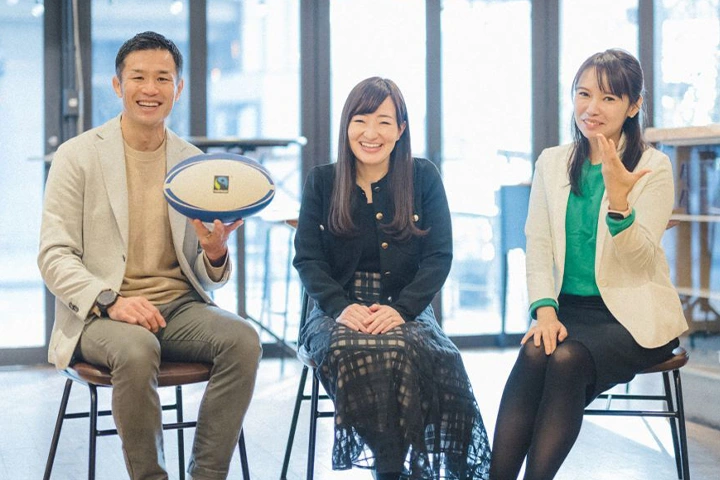
Former Japan national rugby team captain Toshiaki Hirose earned an MBA after retiring from professional sports. He then started his company, HiRAKU Co. Ltd., and engages in diverse range of fields including sports, food, and education. Mari Ikeda and Saori Nakai joined the Digital Strategy Department of Sumitomo Mitsui Banking Corporation (SMBC Group) from non-financial industries. That department, which has expanded its business beyond a financial field, has been launching new businesses combined with digital technologies or services, one after another.
These three business professionals share the experience of venturing into new territory, entirely different from their former environments, to build new careers and take on new challenges.
What drives them to continuously push their limits? What is the key to building a team that goes from “zero to one” and delivers results while tapping into the strengths of its diverse members? They talked about the lessons learned from their experiences.
Reasons behind starting a company and diving into new career
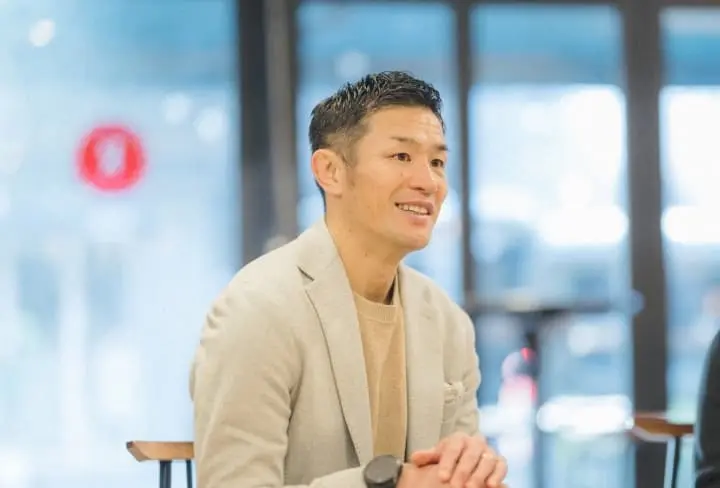
Mr. Hirose, you founded HiRAKU in 2019 after retiring as a professional player in 2016.
Yes, I did. As our company name in Japanese suggests, we aim to “open up” every possibility. For example, BLOSSOM, a café we run in Kamakura City, Kanagawa Prefecture, serves amazake (a traditional Japanese sweet drink made from fermented rice), but not just as a drink. Our menu also includes items that use amazake as an ingredient, like sandwiches with sweet red bean paste and butter, so that our customers can try new ways of enjoying amazake.
Amazake! How did it come to your attention?
Since my rugby player days, I’ve eaten a lot of fermented foods. As I studied food after my retirement, I felt the need to preserve the skills and traditions of Japan’s fermented foods, handed down from ancient times, and pass them on to the next generation. I wanted to shed new light on fermented foods. So, I decided to focus on amazake, which is often referred to as a “drinkable IV shot” because it’s so nutritious.
Our initiatives also include nurturing the younger generation playing sports in Kenya, Africa. I bet many people have seen the feats of physically gifted Kenyans in track and field and other sports. But most Kenyans don’t have a good training environment. I’m building the foundation for a rugby culture in Kenya by sharing Japanese training and coaching methods.
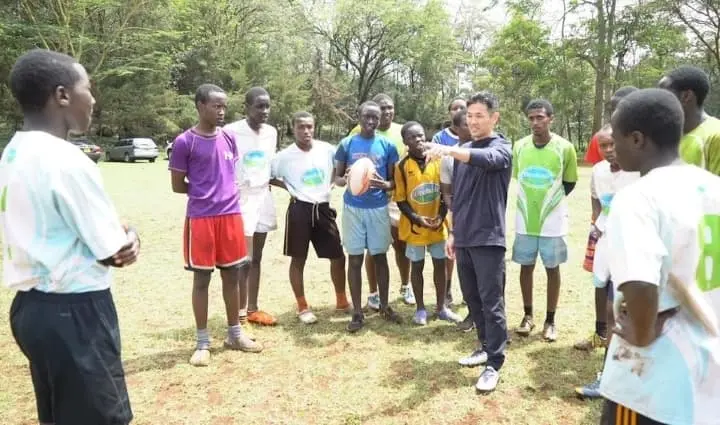
Ms. Nakai joined SMBC Group from the telecommunications industry, and Ms. Ikeda left the insurance industry to join the group. What made you two choose a job in a sector different from your previous ones?
Simply put, I wanted to gain experience in launching new businesses from even more varied perspectives and startup phases.
What it takes to develop a new business, or the work and challenges it involves, differs depending on the business domain and startup phase. For example, “going from 0 to 1” means different things: “0 to 0.2” is not the same as “0.8 to 1” and “3 to 5” differs even more.
In my previous job in the non-financial industry, I covered fintech, which combines finance with technology. I wanted my next challenge to be less constrained by traditional boundaries.
Then, I came across SMBC Group. It had a track record of launching non-financial businesses besides those in its traditional field of finance, and I saw that right now the group has an atmosphere where it is natural to take on challenges.
SMBC Group constantly expects “something new” from its mid-career hires in particular. This was perfect for me, as I was seeking a stimulating environment.
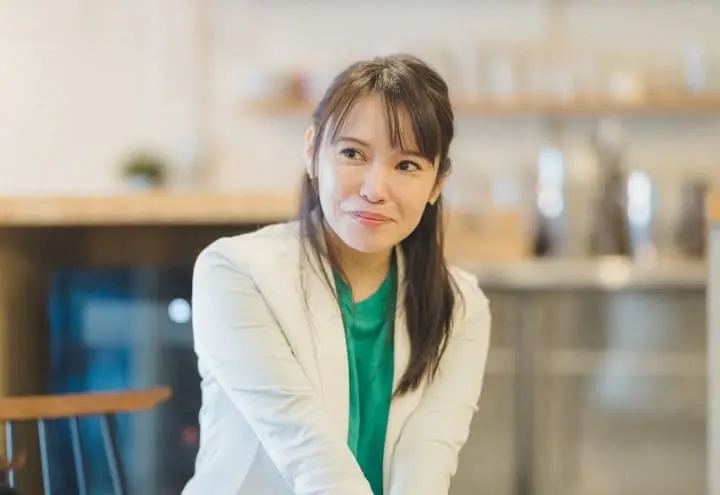
The primary reason I decided to change jobs was that a new business I was involved in had to exit the market because of company policy, and I could no longer do what I wanted.
As my area of new business development had long been in healthcare, I also considered healthcare service companies as potential employers. However, SMBC Group attracted my attention because an acquaintance from graduate school had told me about its business breadth and impact. SMBC also seemed to have an environment that was friendly to employees with small children. This was a plus, too.
In fact, the group evaluates my performance based on results, not hours worked. It also has many female workers raising children, which makes me feel comfortable working there.
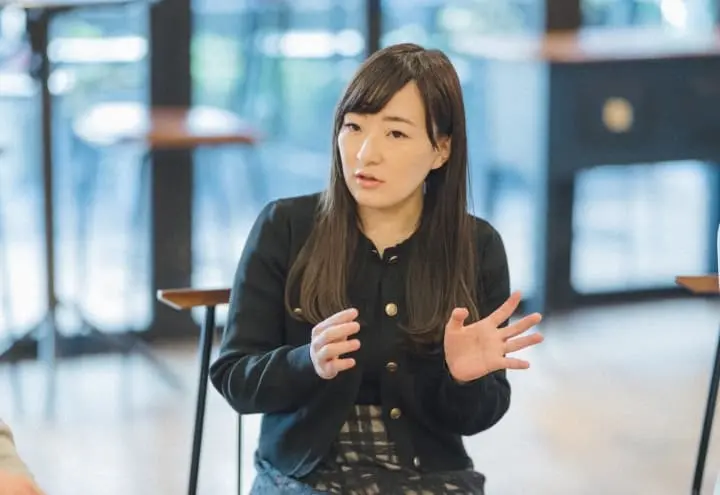
My post-rugby thought: What can a former athlete do?
Mr. Hirose, why did you consider starting a company after retiring from professional sports?
I had played rugby for a long time by then. When I thought anew about the value of rugby as a sport and what I could do, I felt it was important to talk and connect with people with attributes entirely different from mine.
I was afraid I might not be able to go beyond just believing that “rugby is the greatest” if I remained in the rugby world. As a first step, I pursued an MBA, thinking I would study broadly.
The other day, I had the opportunity to listen to someone who runs a company supporting female athletes in their post-retirement lives. Professional athletes are focused on competing, so it's difficult for them to articulate what they can and want to do after retirement when asked unexpectedly.
I also sensed that some people can proactively choose their post-athlete path while others cannot.
That’s a real problem. I’m involved in an initiative called the Apollo Project, which provides programs that help athletes in various sports, including basketball and tennis, to find the core of their lives through learning.
Of course, an athlete’s main priority is competition. However, they do not necessarily spend every waking moments - 16 hours a day after excluding eight hours for sleep - thinking about their sport. Athletes require rest like others; they need time to eat and take some days off. I hope they are able to find their center and use it fully during and after their career as athletes.
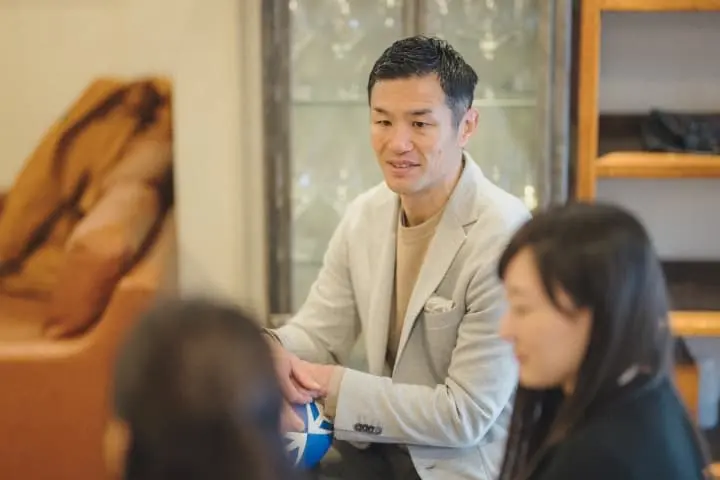
What sport they played and what their role was as an athlete also seem to be factors that make a difference.
I agree. Former captains and those who have played team sports like rugby tend to prioritize harmony, while lone-wolf type athletes and those who have played individual sports tend to emphasize demonstrating individuality. I hope they can find a career and a place where they can leverage their experiences.
How to unite members with diverse backgrounds
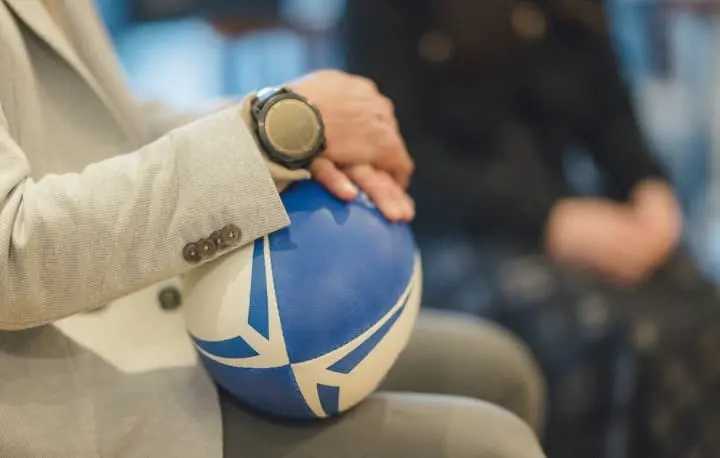
It seems that SMBC Group’s Digital Strategy Department, established in 2020, has people with diverse careers, contrary to the image of traditional Japanese banks.
My team has members with diverse backgrounds, such as those from other industries and employees on temporary assignment from municipal governments, in addition to those who joined SMBC as new graduates. They inspire me a lot with the diversity and breadth of their experience.
Many members of the innovation team, which I belong to, are mid-career hires. One of our missions is to do something banks haven’t done before, and our team is struggling to develop businesses around cutting edge technologies. So, maybe diversity is a requisite in a sense. The team has an environment conducive to innovation and synergy.
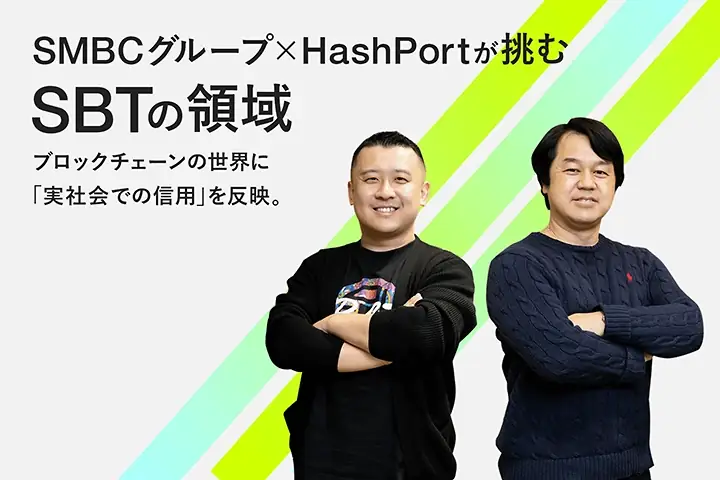
On the other hand, a diverse organization sometimes struggles to set its members’ sights in one direction.
I guess the same happens in sports. Each player's personality can be a driving force, but aligning team members’ awareness is also important. Mr. Hirose, what did you do as a captain to unite your diverse team while you were playing professionally?
The desire to stand out means you have ambition, which is good. But I believe it’s more important to think deeply about the impact of your play and your actions, and whether they are the best choice for the team to win.
If a player asserted that they wanted to play in a certain way, I would consider whether it aligned with our strategy. If not, I would ask them to hold back and carefully explain the reason to them.
A rugby team has a captain and a sub-captain, and each position has its leader. The captain organizes the manager’s game plan and shares it with the leaders, who communicate it to their members.
Each time, the team would have a series of discussions to reach a consensus. This is never meant to crush individuality. What was said within the team would be things like: “This time, I have to ask you to hold back, but we can try that next time.”
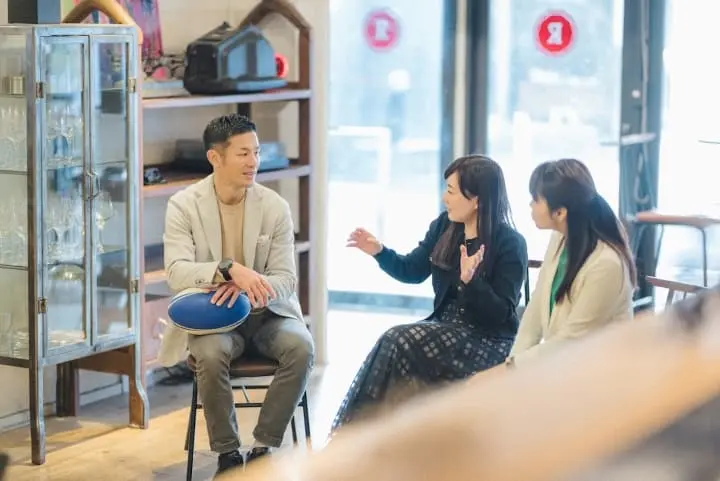
I see. I’ve heard that a “good clash” (productive disagreement) is even recommended in a diverse environment. But I didn’t know how to encourage good clashes among people with strong personalities. What you’ve just said has made me realize that the key is to build consensus and understanding by listening carefully to what each member has to say.
That’s right. For communication to encourage a good clash, you must give a sense that others are not being ignored.
The captain doesn’t do everything by himself. He needs the cooperation of leaders and relies on the players’ buddy system and connections with players from the same country to build the team. In one instance, a player who didn’t respond to my repeated attempts to talk him into something immediately accepted it when it came from a higher-up from his home country (laughs).
At times of anxiety, we look at what we’ve built
Could you tell me about your focus on achieving goals and how to remain mentally and physically balanced?
Of course, the goal in rugby games is to win. So, I focused on winning. Meanwhile, I also tried to envision why I pushed myself to win and what kind of a world I hoped to create through winning.
We don’t know who will win until the end of a game, so winning shouldn’t be the sole purpose. It’s also important to feel a sense of achievement, to think that we did our best, and to feel we had grown, even a little, in the process.
What would you do if you still felt uncertain?
We would look at what we had built along the way. While acknowledging our anxieties, we ultimately reached a point where we knew: 'This stage is ours and ours alone. There's nothing left to do but give it our all!' In a sense, you have to 'go for broke' in the final phase, and just be ready.
That makes sense to me. I’ve been developing new businesses for about nine years. During that time, I’ve had very few successes, and I’ve made a lot of mistakes. But I’ve learned a lot from the experiences.
You mentioned looking at what you’ve built. The same is true for business. Unless we look back, we won’t know what determined the success or failure, or even what constitutes failure itself.
Exactly. We cannot create innovation without trying. Half of the projects I’m currently working on came about by pure chance, and the other half because of my desire to do what others aren’t. My activities revolve around “opening up” sports and athletes’ experiences. I’d like to keep trying without fear or hesitation.
What it takes to keep trying
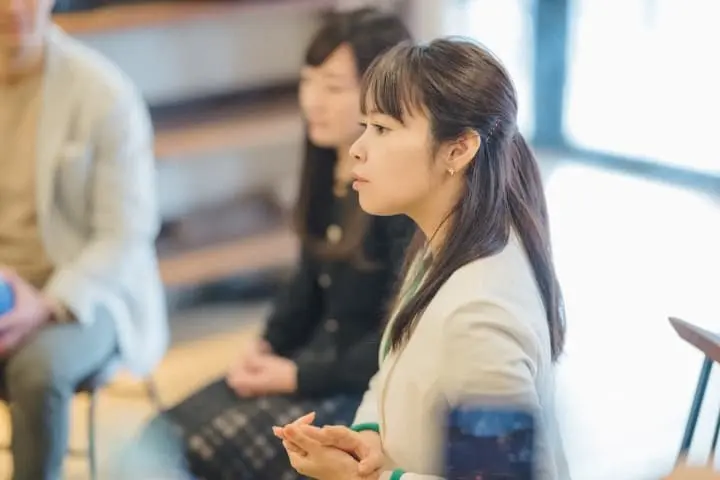
Again, why does a bank focus on new businesses?
Ms. Ikeda touched on the insurance company example, and I think the situation is the same for the financial industry. Society has changed, and the industry faces a fundamental crisis: it can no longer meet customer expectations and demands through financial services alone. In addition, recognizing that offering financial services is not enough to compete, banks must also offer non-financial services.
Given these circumstances, SMBC Group has set out the direction of its digital strategy with the slogans “Beyond & Connect” and “Empower Innovation.” Top management has repeated the message that the group must “take on new challenges.” That is what is unique about us.
And it’s not limited to top management. Employees at all levels are also echoing this commitment. This shared mindset across all ranks may be testament to SMBC’s organizational strength.
You’ve taken on various challenges. What does it take to keep trying?
The first thing is not to become overly focused on results. Results matter, but the very act of trying is meaningful. Things like discovering a new side of yourself and feeling that you have grown are also important.
The second thing is having a place to return to. If you have a place where you know you will be welcomed back anytime, it will mentally support you and make it easier for you to try new things. I have such places. It’s rugby, friends I made through rugby, and my family. It’s necessary to create such a haven.
Lastly, tell me what you’d like to try in the future.
My current goal is to create services that have unprecedented value and impact, leveraging the agility of a megabank group, and making such services available to many people.
I, too, have a strong desire to deliver new value to the world. The “toC” business already offers so many services, and it’s challenging to have customers choose them and monetize them. But I intend to keep on trying because I believe the “toC” business can truly change the world.
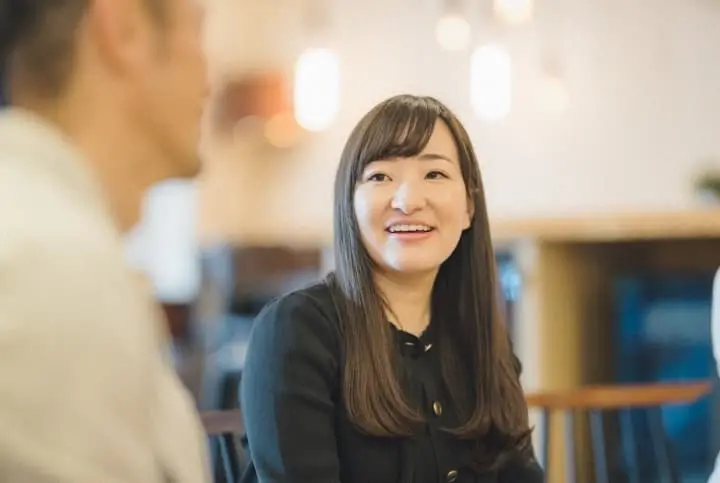
In the coming era, when artificial intelligence will be the new normal, we need to face technology head-on while asking the fundamental question of what humans can offer and what values they bring.
Sports could be key to this. I hope to always find the kindness and potential in people, even in an increasingly digitalized world.
---
Business Insider tieup advertisement, published January 29, 2025
-
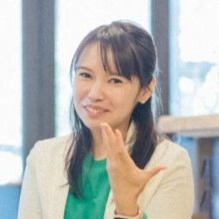
Vice President, Digital Strategy Dept., Sumitomo Mitsui Banking Corporation
Saori Nakai
Before joining SMBC Group in 2023, Nakai developed new fintech businesses and formed tie-ups at a financial institution and a telecom carrier. She is a member of the innovation team that develops businesses around new technologies, where she is responsible for expanding Web3- and blockchain-related technologies to financial and non-financial services, and for running an open innovation site.
-
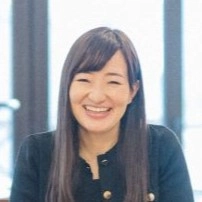
Vice President, Digital Strategy Dept., Sumitomo Mitsui Banking Corporation
Mari Ikeda
Ikeda previously worked at a sales branch and the marketing division of insurance companies before being assigned to new businesses in healthcare and services for seniors. Ikeda joined SMBC Group in July 2024, where she is a member of the “toC” team developing new consumer-facing businesses. Her job is to create value in non-financial domains.
-
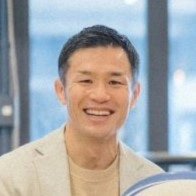
Representative Director of HiRAKU Co., Ltd.,
Toshiaki Hirose
Toshiaki Hirose was born in Osaka, in western Japan, in 1981. He started playing rugby when he was five years old and played for Osaka Prefectural Kitano Senior High School, Keio University, and Toshiba. He played in 28 matches as a member of the Japan national rugby team and captained the Japan team for two years, from 2012 to 2013. Thanks to his efforrts, the Japanese national team achieved a historic milestone by securing three victories at the 2015 Rugby World Cup - their first-ever accomplishment of this kind. After retiring as a professional player, Hirose studied management at the Business Breakthrough Graduate School of Management and earned an MBA. As the representative director of HiRAKU, Hirose is active in various fields, including sports promotion, education, health, and food. One of the books he has authored is “Nan no tame ni katsu no ka. rugby nihon daihyo wo kessokusaseta leadership ron” (English title: The Purpose of Winning: Leadership Theory that United Japan’s National Rugby Team).
